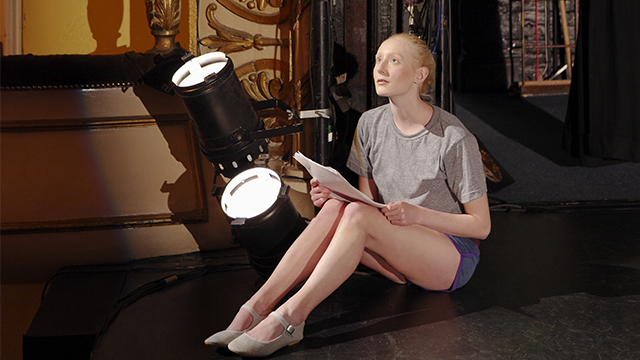10 Important Reasons Why Young People Should Do Theatre
Written by Rob Ward
August 8, 2017
Drama students know that the theatre is a place of understanding, creativity, and family. Whether you’ve devoted your entire life to the performing arts, or you’re just considering taking an acting or technical class or two, theater experiences hold valuable lessons that can serve you well in business, relationships, and life.
1. Confidence is key.

High school can be a time of self-doubt, and low self-esteem for some teens, leaving them lacking in personal confidence. Few things in life will teach confidence faster than standing on stage, and letting yourself shine in front of an audience of your peers, friends, and family. That confidence can take a theatre student far, both in the workforce and in life.
2. Rejection sucks, but you can survive it.

Sometimes you audition your heart out, hoping for a lead role, but when the cast list is posted, you find yourself in the chorus, or worse, not on the list at all. It’s theatre though, and as always, the show must go on. The high school theatre student learns to shake off the rejection, give their best performance in that ensemble, learn, grow, and try again next audition.
3. It’s not all about you.

Life can be more fun when you work as part of a team – Partnering with the other actors on stage, the set crew, the lighting, sound, hair, makeup, and costuming crews, high school theatre students learn quickly that theatre is not a solitary art. It takes a small army to put on a show. Everyone has a job to do, and the entire team must work together to create a great show.
4. The world is a big place, full of different cultures and values.

While working as part of that big team, high school theatre students interact with fellow students from different backgrounds while presenting shows that tell culturally diverse stories from all over the world. Keeping an open mind is basically a theatre student’s full time job.
5. Make your voice heard.

To be heard and believed on stage, theatre students must learn to project, and annunciate, always improving their diction, intonation, and delivery. Being heard at a job interview or business meeting? No sweat.
6. Emotions were meant to be expressed.

Psychologists say, “don’t hide your emotions, deal with them.” Who is better equipped to deal with emotions than theatre students, who spend hours on stage expressing every emotion a human is capable of feeling?
7. Discipline is a key to success.

Theatre ain’t easy. It takes hard work, focus, and discipline to put on a show. Any theatre kid who has spent hours and hours learning lines, building costumes and sets, and rehearsing after school and on weekends, all the while trying to keep up with family, social life, work, and school responsibilities can tell you that.
8. Sometimes you need to take a risk to get the reward.

Employers are constantly seeking leaders who don’t always play it 100% safe, and who are not afraid to take calculated risks. The high school theatre student learns very early on, if they want to get noticed on stage, they have to learn to trust themselves enough to take a risk, try something different, and never ever “play it safe.”
9. Constructive criticism and feedback are there to help you grow.

After most rehearsals, the director gives theatre students notes on their performance. Theatre students quickly learn that the intention of a note is not to tear them down, but help them create the best performance possible. The response to a note from the director should never be arguing or excuses, it should simply be “thank you.” Imagine if people in the workplace accepted feedback that way.
10. Do what you love.

There’s an old saying that goes, “If you do what you love, you’ll never work a day in your life.” High school theatre students live this principle. They put hours of work in, and at the end of the day, no one’s getting paid, but they sure are getting rewarded with pride in a job well done, skills that can last a lifetime, and friendships they’ll never forget.
Need some advice? We’ve got you covered.
- 10 Basic Rules of Stage Combat (That Keep Everyone Safe)
- 5 Advantages of Learning Stage Combat
- Don’t Be a Diva: Common Pitfalls and How to Avoid Them
- 9 Articles of Clothing Every Thespian Should Keep In Their Wardrobe
- What Makes an Actor Website WOW?
- “Is my attitude not getting me roles?” And Other Essential Questions for Actors
- 6 Steps to Memorizing Shakespeare
- 10 Tricks to Staying Healthy All Season Long
- What Does It Take to Break Into Voiceovers?
- 5 Tips for Nailing Your College Music Theatre Audition
- 10 Tips on Owning the Room at Competition
- How to Balance Theatre and Coursework
- The 10 Secrets of Great Understudying
- 10 Items Every Actor Should Carry in Their Rehearsal Bag
- 10 Items Every Dancer Should Keep in Their Rehearsal Bag
